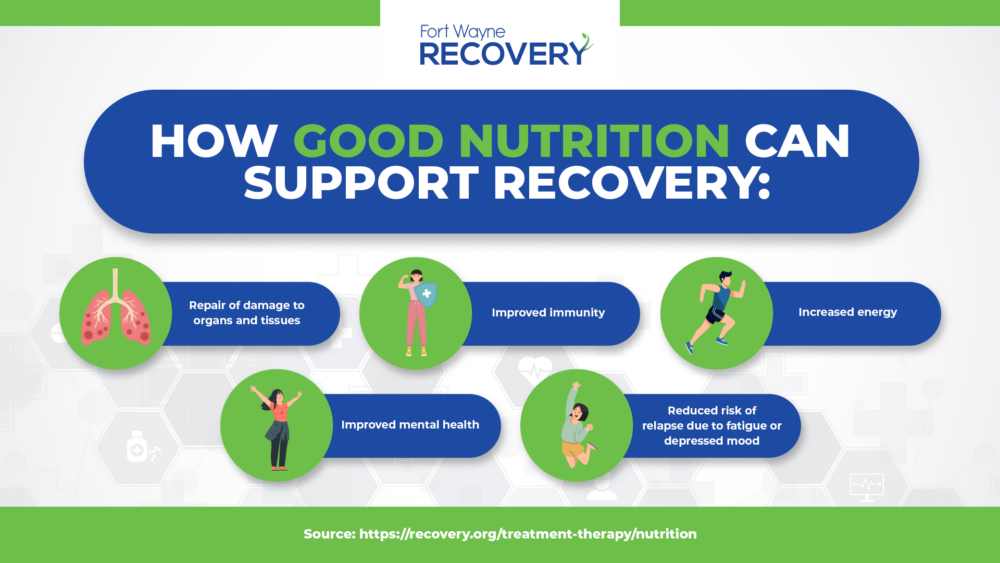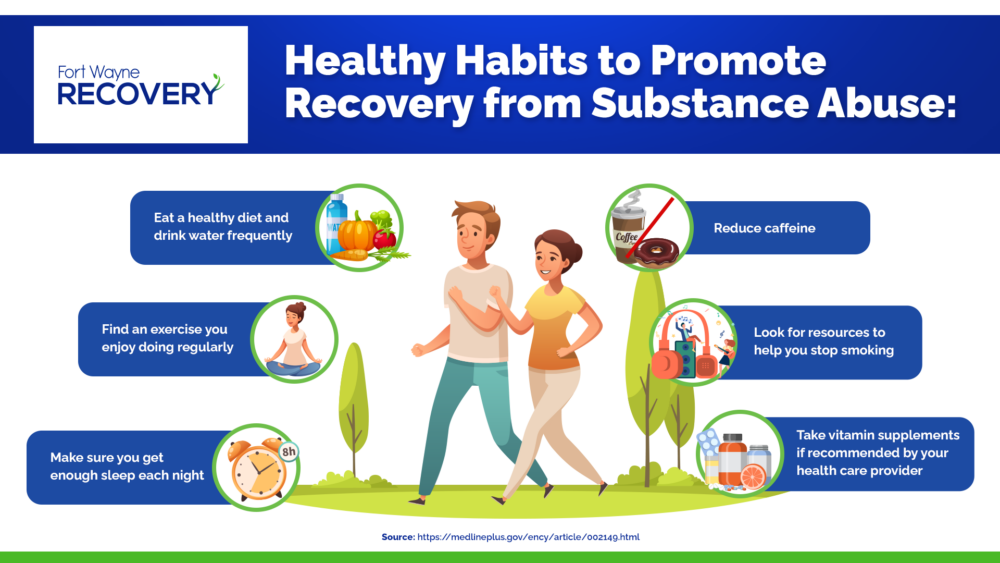The Link Between Exercise And Nutrition On Substance Use Disorders
The Link Between Exercise And Nutrition On Substance Use Disorders
Medical professionals have long promoted a healthy diet and regular exercise to prevent chronic diseases and help people live a longer and healthier life – but recent studies have found that exercise in particular can be effective in treating substance use disorders (SUDs) and in maintaining sobriety from drugs and alcohol.
This is due in part to the relationship exercise has on the brain as well as serving as a positive coping mechanism when someone is feeling the urge to use drugs or alcohol. Additionally, diet can play a role in helping to curb addictive behaviors while also providing nutrients that can reverse the physical damage done to areas of the body such as the heart and liver, due to the ongoing use of drugs and alcohol.
How Exercise Can Prevent
Substance Abuse and Relapse
In studies that looked at the role regular exercise played in substance use, 75% saw a decrease in active SUDs. This research also showed that regular physical activity has a positive impact on people’s mental health and can increase self-worth, self-esteem and confidence, while at the same time reducing behavioral health issues like anxiety and depression which are often addiction triggers.
75%
of people who regularly exercised saw a decrease in active SUDs
Every time someone exercises neurotransmitters including dopamine and serotonin get released into their brain which activates receptors that produce a positive or euphoric emotional state similar to drugs and alcohol. So, in essence, exercise can be used as an alternative to these substances by the user who will still experience the same positive effects on their brain. Jeremiah Weinstock, a psychology professor at St. Louis University, who studies addiction says that he views exercise as a type of medication because of the way it impacts the brain. “Exercise is fantastic medicine for those struggling to recover from their addiction.”
People with a SUD who don’t exercise on a regular basis may initially be deterred by the amount of exercise they’ll have to do as part of their treatment plan but Dr. Mark Smith, professor of psychology at Davidson College in North Carolina says that even a moderate amount of exercise can help with recovery. “I think there’s now a sufficient amount of data to indicate that various forms of physical activity and exercise are generally effective at reducing substance use in individuals seeking treatment,” says Smith. “If you give individuals an alternative activity that they enjoy, then by default, substance use will decrease. They have something else to do with their time.”
“Physical activity and exercise are generally effective at reducing substance use in individuals seeking treatment”
Dr. Mark Smith, Professor of Psychology at Davidson College
A Healthy Diet Can Support Recovery
Ongoing substance use can have a significant impact on the foods someone chooses to eat which can lead to weight gain and the development of chronic conditions such as diabetes, this is especially true with alcohol addiction. Research shows that chronic alcohol abuse and a bad diet often go hand and hand and too much alcohol can also impact nutritional intake, which can lead to more alcohol abuse. People struggling with alcohol abuse often become fixated on their drinking and less interested in eating a balanced diet which can lead to liver disease and permanent damage to the pancreas, heart and brain.
Ongoing alcohol addiction can also compromise the immune system and prevent certain nutrients from metabolizing. Approximately 70% to 80% of immune cells are located in the gut so a well-balanced diet is an important part of preventing an illness from occurring. Additionally, symptoms like diarrhea and vomiting which are common during withdrawal can dehydrate and deplete the body of vital nutrients.
Health professionals have found that a personalized nutrition plan as part of a rehabilitation treatment program, can help people with a substance use disorder maintain their sobriety by restoring the nutrients they’re missing and repairing the damage done to their body which will help them to feel better and stronger in their recovery journey.
Since withdrawal symptoms can be uncomfortable and painful, medical professionals recommend that the detox process be completed before a focus is put on nutrition as part of treatment.
The Connection Between
Diet and Exercise on Mental Health
The link between behavioral health and SUDs only solidifies the importance that exercise and diet play on treating addiction and supporting recovery. Exercise and proper nutrition can help the brain heal from substance abuse and increase the user’s odds of getting and staying sober. “Exercise has so many benefits for those overcoming an addiction,” Weinstock says. “There is the immediate bump in mood after one’s workout, and, over time, exercise reduces depression and anxiety, which often co-occur with addiction. Exercise also helps the brain heal from the many damaging effects substance use has on our brains.”
The impact exercise has on alcohol-use disorders and recovery is also evident as noted in a 2019 review in which the authors concluded that “exercise is associated with brain health, alcohol is not, and the mechanisms by which exercise benefits the brain directly counteract the mechanisms by which alcohol damages it.”
“Exercise is associated with brain health, alcohol is not”
Jeremiah Weinstock, Professor of Addiction Psychology, St. Louis University
Addiction experts say that not only does good nutrition help support brain health, but it can also provide structure to someone in recovery as they take on the responsibility that comes with preparing their own meals. Cooking can also provide them with a sense of duty of looking after themselves and taking care of loved ones that they are preparing meals for. Over time, this action can help to increase confidence and build self-esteem in the person which reduces the threat of a relapse from occurring.

While a healthy lifestyle can be an effective way to help with substance abuse recovery, Nate Moellering a community outreach coordinator at Allendale Treatment and Fort Wayne Recovery says that it’s important that exercise and diet not manifest into a backup addiction such as an eating disorder, “When I was in recovery I was hitting the gym every day and I thought this was a good way to maintain my sobriety but one of my counselors told me it was important to make sure I wasn’t becoming fixated with it because it could morph into a backup addiction,” says Moellering. “People need to make sure they’re aware of how the activities or hobbies they take up once they are in recovery impact them because drugs and alcohol aren’t the only things that people can become addicted and it’s not uncommon for addiction to manifest in other forms.”


